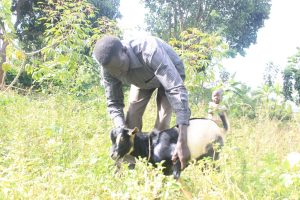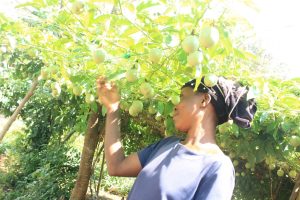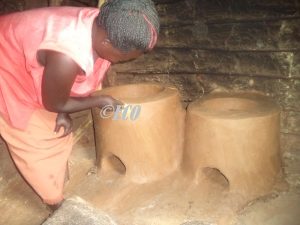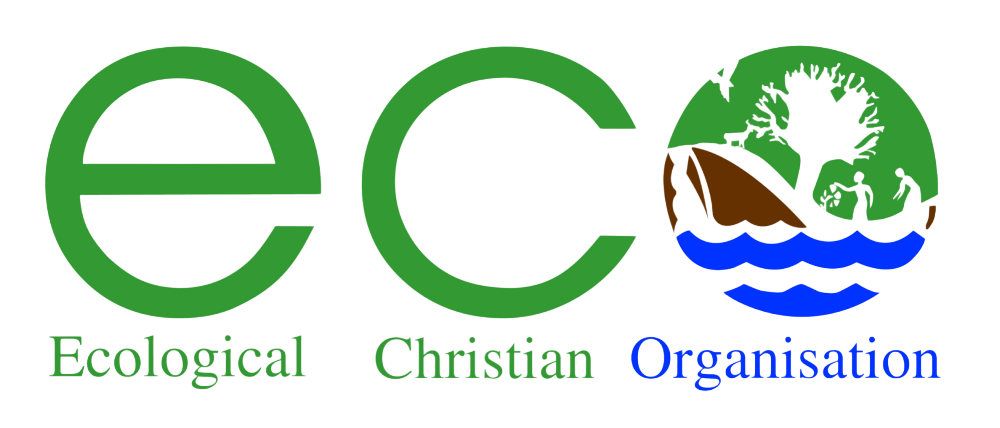Promoting Natural Resources Management for Sustainable Livelihoods (PNRM4SL)
Ecological Christian Organisation (ECO), a national Non-Governmental Organisation in Uganda with financial support from Bread for the World (BROT) implemented a project promoting the use of local resources for sustainable livelihoods in the fishing and mining communities around Lake Victoria basin and Karamoja sub-region respectively. The project commenced in September 2016 to December 2019. The direct beneficiaries of the project included local small-scale miners, agro-pastoralists, small scale farmers and fishing communities. The indirect beneficiaries included the local government institutions in the Districts of Mayuge, Kyotera and Moroto. The project was an extension of the first project, which targeted Karamoja Women in Mining & Development (KWIMD) specifically empowering and building the capacity of Women Artisanal Miners to engage in responsible, organized and safe mining practices and increase the economic contributions of ASM from 2014-2016. The 3 year project which ended in December 2019 intended to benefit a total of 35,260 people (23,625 Female and 11,635 Male) in the lake victoria basin (Mayuge and Kyotera) and 21,160 (15,870 Female and 5,290 Male) in Tapac and Rupa sub-counties Karamoja region.
PROJECT PURPOSE
The goal of the project was to contribute to improved and sustainable livelihoods among mining and fishing populations living in and around the mining and fishing areas in Karamoja and the Lake Victoria respectively.
Objectives
- People living in and around the Lake Victoria Basin (Kyotera and Mayuge) to manage natural resources in a sustainable and profitable manner
- Women artisanal mining communities engage in profitable and responsible mining and extended business activities aimed at increasing the economic contributions.
- Policies/byelaws guiding the use of natural resources at local levels by the local government systems and communities around the mining and fishing communities in Karamoja and Lake Victoria Basin are formulated, adapted and implemented in order to protect the environment.
The following were results in the Lake victoria projet sites project site
- 11 Fish breeding sites, identified, demarcated and monitored. These sites were protected as fish breeding zones to allow reproduction of the fish without distractions from the fishermen. In addition, these zones halted the fishing of premature fish which enabled fish to grow to maturity. As a result, the weight of caught fish increased and this subsequently increased incomes of the fishermen.The project also installed innovative locally fabricated wooden fish ponds for women and youths. A total of 210 famers were trained comprising 121 male and 89 female. This increased the number of women and youths running environmentally friendly businesses and hence increased income. On the other hand two locally constructed wooden fish farming ponds were established at Bwondha community nursery with a capacity of 500 fish each pond to reinforce community incomes of the group members.
- 525 model households established, practicing agro-ecological enterprises and s ustainable land management practices. (Soil and water management, Crop rotation and cropping systems, Soil fertility management, organic compositing, Pest and disease control & organic pesticide formulation and application), tree planting, energy stove construction, poultry and fishing. A total of 3,860 small holder farmers were trained in sustainable farming practices with 6 demonstration gardens established.)
- Agroforestry practices: 3 Tree seedlings Nurseries established; 358,000 Tree seedlings raised, 200,000 tree seedlings planted in project area, with over 60 % survival rate.
- Value chain development including; Solar driers for preservation of silver fish. The training and solar drying facility enabled longevity of theshelf life for the fish products, increased the fish market value and increased the number of women and youths running and owning environmentally friendly businesses and hence increased incomes.
- Nature based income generating activites: poultry and goat farming in addition to Soya bean and pawpaw growing as income generating activity in a bid to diversify the livelihoods of the communities.
- A total of 5000 Energy saving Stoves Constructed and in use by 3,334 Households in the project.To reduce pressure on forest resource exploitation, ECO is promoting the the construction and adoption of 334 energy saving stoves among beneficiary households. The promoted energy saving stoves saved fire wood 6 times compared to the traditional 3 cooking stones. This had a subsequent reduction in tree cutting for fire wood.
The following were results in the Karamoja project site
- SOCIO-ENTREPRENEURSHIP: Small grants for entrepreneurship. Resulted into 11% of the ASM women engaging in eco-friendly enterprises. This included women subscribing to project groups and associations. Nature based IGAs ventured to comprised livestock rearing, vegetable growing during the wet season and cereal banking.
- SAFE AND SUSTAINABLE MINING SUPPORT :Trainings on hands-on appropriate safer and environmental-responsible mining techniques (mercury free mining practices and backfilling of the pits) were conducted among the ASMs at all mining sites in Moroto to create a more diverse and healthy production environment that would enhance the resilience of mining. The sustainable mining practices included, mercury free mining, back filling of pits, reduced tree cutting for burning rocks, use of good quality tools to reduce straining, use of protective wear during mining, not involving children in mining etc. The miners were also supported with mining tools including hammers, pickaxes, spades, basins and jerrycans which helped improve the level of output and use of sustainable mining practices. Tools grants were given to 8 groups of Nakabaat Mining Group, Lopusak Youth Mining Group, Nalola Mining Group,Namurukupoi Miners group in Rupa and Napang 1,Napong 2 ,Nakatorongot Mining Group,BabaMoru Ekesil Mining Group in Tapac consisting of 160 people. The provided tool fund revolved in the group saving schemes and miners obtained loans from the savings and bought mining equipment.
- VILLAGE LOANS AND SAVINGS ASSOCIATIONS (VSLA) the project reorganised over 62 women ASM groups into 9 major groups. The groups were supported to start VSLAs and trained in finacial literacy, book keeping and leadership. Books and saving boxes were given to each of the group and these enabled them in tracking records of the savings and keeping of the money respectively. The groups were also supported with a start up capital which was revolved amongst all group memebers to invest in other income geerating activities. Some of the IGAs invested in included retail shops, livestock, vegetable growing brewing and mining. This led to increased incomes of ASMs since they were nolonger dependant on only mining.
-

A beneficiary farmer with his goat -

passion fruit growing as an income generating activity -

A beneficiary with her an energy saving cook stove installed by the project
